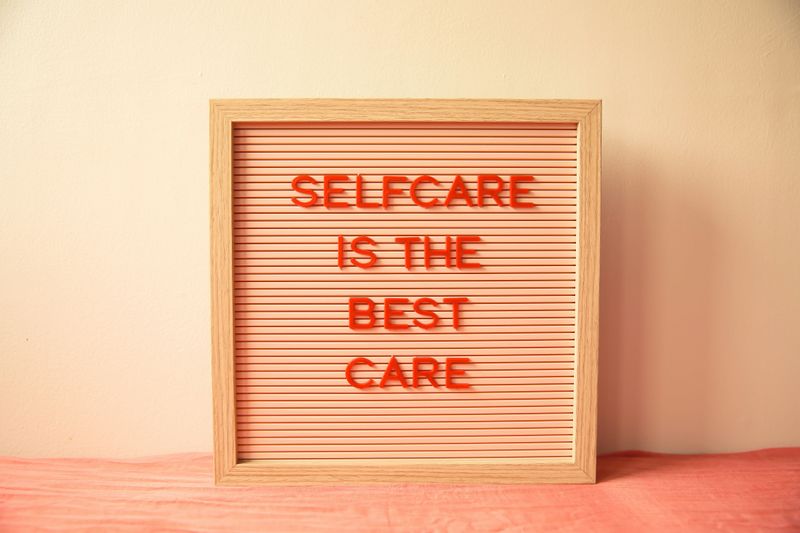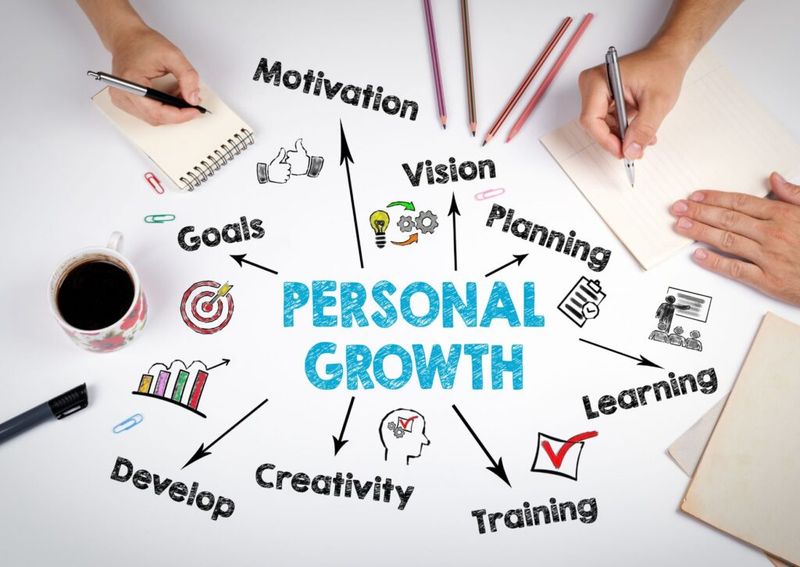16 Empowering Responses When Your Adult Child Gaslights You
Few things are more painful than your own child — now an adult — using manipulation tactics against you.
Is it denying events that clearly happened or making you question your memory and emotions? Gaslighting can leave you feeling confused, hurt, and powerless no matter what. It’s especially disorienting when it comes from someone you love deeply and have supported throughout their life.
But here’s the truth: You do have power. You can set boundaries. And most importantly, you deserve to protect your emotional well-being.
You can use these 16 responses when the truth gets twisted. Don’t worry! I’ll hold your hand (figuratively, of course.).
1. Recognize the Manipulation

The realization hits like a light turning on in a dark room—it’s both unsettling and liberating. This moment of clarity is critical. As you jot down your thoughts in a journal, you start connecting the dots. You remember when your words were twisted or your feelings dismissed.
The key here is to stay rooted in truth, even when your world feels shaky. Recognizing the manipulation doesn’t mean you have all the answers, but it’s a powerful start.
This is your journey back to emotional clarity and self-confidence. You deserve to occupy this space.
2. Set Firm Boundaries

It’s like drawing a line in the sand. You mark where another’s influence ends and your personal space begins. It’s not about creating walls but establishing respect. You state your needs without apology.
As you speak, there’s a newfound confidence in your tone. You’re no longer dancing around discomfort but facing it head-on. There may be pushback or attempts to make you feel guilty. But each firm, calm response is a reinforcement of your right to be treated with respect.
This act is inherently empowering. It signals to yourself and others that you value your emotions and experiences. This is about shifting the dynamic from reactive to proactive.
3. Trust Your Intuition

You know that quiet voice inside that often knows the truth before your mind can comprehend it? It’s a whisper, a feeling that nudges you toward what you’ve been ignoring. That’s it. Let your intuition speak.
This inner guidance cuts through the fog like a beam of light. It tells you when something feels off, when the truth is being tampered with.
Trusting your intuition requires practice and patience. Acknowledge that your feelings are valid even when others try to convince you otherwise. You are your own best ally!
4. Document Your Experiences

Each word you type is a thread of reality.
This isn’t just about creating a record—it’s about affirming the truth. When gaslighting leaves you doubting your own mind, these notes become a tangible reminder of what you’ve lived. As you write, you find clues that help you make sense of the confusion.
You go from feeling like a helpless participant to an active narrator of your own story. It provides clarity and, more importantly, a sense of control.
5. Seek External Support

This is both a courageous and necessary step. In these moments, you realize that you’re not alone in your experiences.
External support can come in many forms—a trusted friend, a therapist, or a support group. It’s about finding your tribe, those who offer a mirror to the truth when you struggle to see it yourself.
The community becomes a pillar of strength. It is crucial in counteracting the isolation that gaslighting often brings. Now, you’re ready to face the challenges with a fortified heart.
6. Use “I” Statements

Envision yourself in a cozy cafe, speaking to your adult child across the table. Your words are calm but firm: “I feel hurt when my feelings are dismissed.”
This helps maintain control over your narrative. It allows you to articulate your emotions without placing the other person on the defensive. Many times, it can defuse tension. And that opens the door for honest dialogue.
You notice a change in dynamics. By focusing on your feelings, you invite understanding rather than confrontation. This doesn’t guarantee immediate change, but it sets a tone of respect and openness.
7. Practice Self-Care

Consider this your sanctuary, a refuge from the turmoil of being gaslighted. It isn’t just about physical relaxation, it nurtures your emotional and mental well-being. It’s to remind yourself of your worth outside anyone else’s influence.
This act of self-love reinforces your right to peace and happiness. It’s a declaration that you deserve care, especially from yourself. Each self-care ritual, whether it’s a bath or a walk in nature, is a step toward reclaiming your personal power.
Recharge your spirit!
8. Reframe Negative Thoughts

It’s like adjusting the lens through which you see the world. Picture yourself by a window as you sip tea and write in your journal. Each word you write becomes a quiet act of defiance — a gentle but powerful response to the negativity that gaslighting can plant in your mind.
It’s saying, “Yes, this happened, but it doesn’t define me.” With every positive thing written, you dismantle the power those negative thoughts hold over you.
As the pages fill, you find a sense of power. You are more than the sum of someone else’s manipulation.
9. Establish a Safe Space

Visualize a cozy corner in your home, a sanctuary with a comfortable chair, soft lighting, and a warm blanket. This is your place untouched by the chaos of manipulation.
In this space, you allow yourself to relax and recharge. It’s a haven where you can think clearly, free from external pressures. This is where you can reflect, meditate, or simply be. Your feelings are valid here, your thoughts respected.
Having a safe space is crucial when dealing with gaslighting. It provides a physical reminder of your control. It’s a cornerstone in your journey to reclaim your peace.
10. Educate Yourself

Knowledge is empowering! It equips you with insights into the tactics being used against you and the impact they have. This understanding breeds confidence. With each page turned, you feel the fog of confusion lift and replaced by clarity and awareness.
Arm yourself with tools to push back. Use this knowledge as your armor. It shields you from future manipulation. It helps you stay clear-headed and confident during tough conversations.
You are making a big step toward taking back your power—and your peace.
11. Reflect Before Reacting

Taking a moment allows you to process your emotions and thoughts before responding to manipulation.
It helps break the cycle of reactive responses. It gives you the space to assess the situation and understand your feelings. Then you can choose a response that aligns with the truth. This is not about suppressing emotions but about gaining control over how you express them.
That way, you’ll find a balance between feelings and response. Respond thoughtfully rather than impulsively.
12. Communicate Openly

A candid conversation with your adult child at the kitchen table. That’s an image to keep in mind. That’s the goal. You speak openly and share your feelings and experiences.
This takes willingness to listen as much as to speak. You invite your child to understand your perspective and leave space for mutual respect and empathy.
It doesn’t always lead to immediate resolution, but it lays the groundwork for healthier interactions. It’s a process!
13. Affirm Your Reality

Stand in front of a mirror and remind yourself of your worth. Take a deep breath. Now repeat. As many times as needed until you have courage to say those reminders to your adult children.
Make it a daily ritual! It’s a declaration of your sanity, a solid ground to stand upon.
It’s not just about thinking happy thoughts. It’s about remembering who you are. It reminds you of your strength. This small practice is a big step in staying clear, calm, and grounded—no matter what’s going on around you.
14. Limit Direct Confrontations

Walking away from a heated argument, calm and composed. That is all it takes. Forget what you feel inside, just choose at that moment to simply walk away. That’s a win in itself!
Remember to pick your battles wisely. Not every provocation warrants a response. By stepping back, you maintain control and refuse to be swept into unnecessary conflict.
It minimizes the emotional toll of constant confrontation. As you walk away, you leave behind the tension. You choose peace over chaos.
15. Reflect on Personal Growth

This is a moment of introspection. It’s recognizing how far you’ve come.
Amid gaslighting, it’s easy to feel stagnant. But as you reflect, you see the strength that has shined through. Each memory is a proof of your capacity for adaptation.
This is the evolution of your spirit. A moment of reflection is a pause in your journey, where you give yourself a pat on the back and say “You did good!”
16. Focus on Future Goals

This is your map to a future defined by your terms. You crossed a big, red monster on your way here and now, only great things await.
You’ve gone a long way from past wounds to future possibilities. Set goals that inspire and motivate you. You are the architect of your destiny!
Future goals give you direction. They point you toward a life that feels true to you. They’re proof of your strength and your desire to live with purpose. Focusing on what’s ahead helps you take back your story—and move toward the life you truly deserve.







